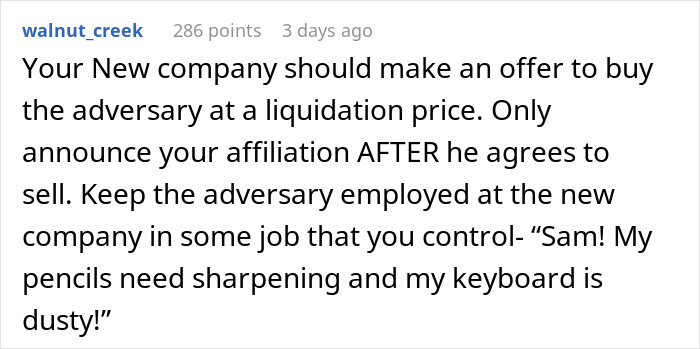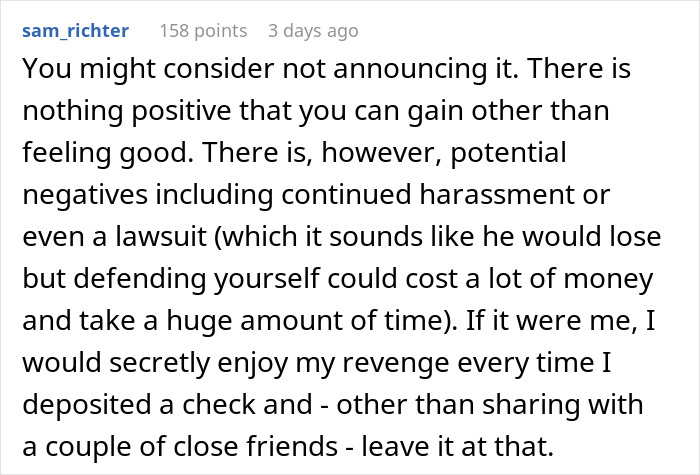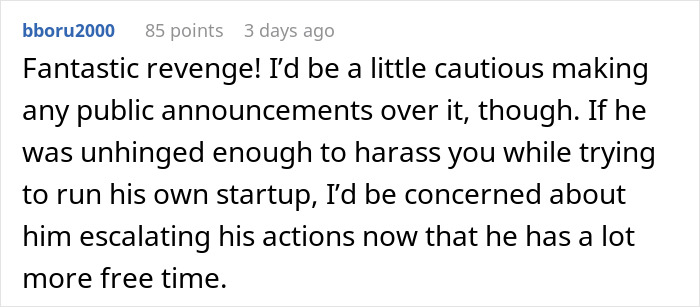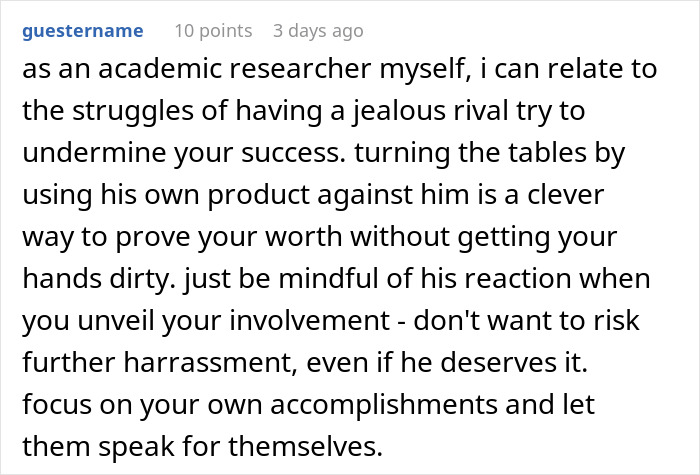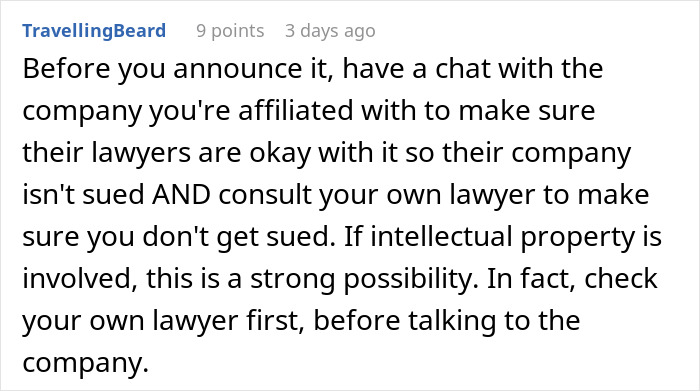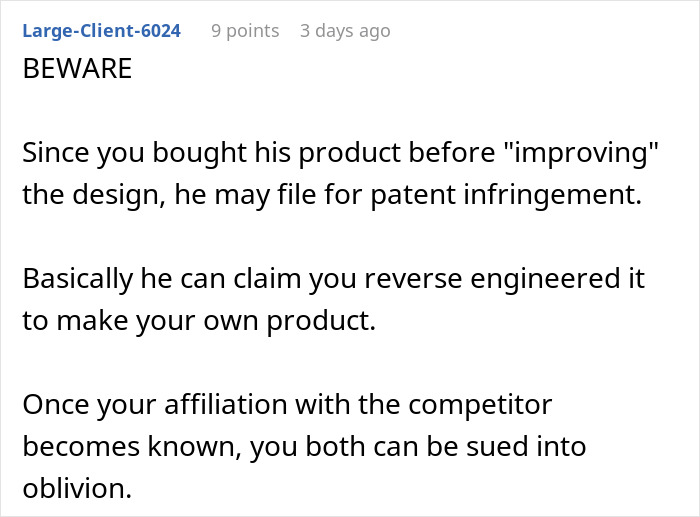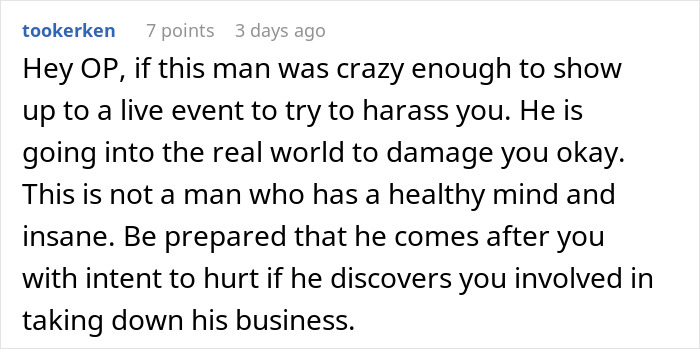As we all know, haters gonna hate. But rude comments typically say a lot more about the people writing them than those they’re directed towards. And if your career is thriving, you probably don’t have enough time to be harassing others… Right?
Well, one academic researcher recently posted a story on Reddit detailing how he got petty revenge on a jealous CEO who refused to leave him alone after he won a tech competition. Below, you’ll find the full story, as well as some of the replies amused readers shared.
After winning a tech competition, this researcher started receiving an influx of hate from the CEO of a startup

Image credits: Anna Shvets / Pexels (not the actual photo)
So he decided to go out of his way to help the CEO’s biggest competitor
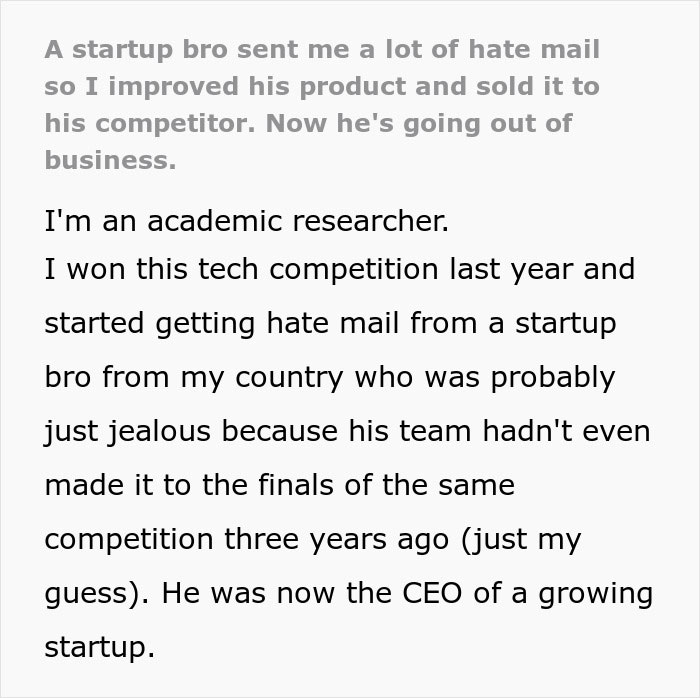
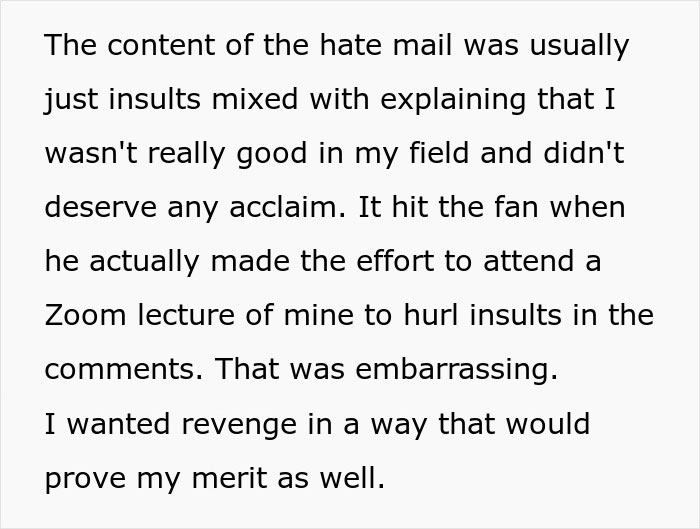

Image credits: Mikhail Nilov / Pexels (not the actual photo)
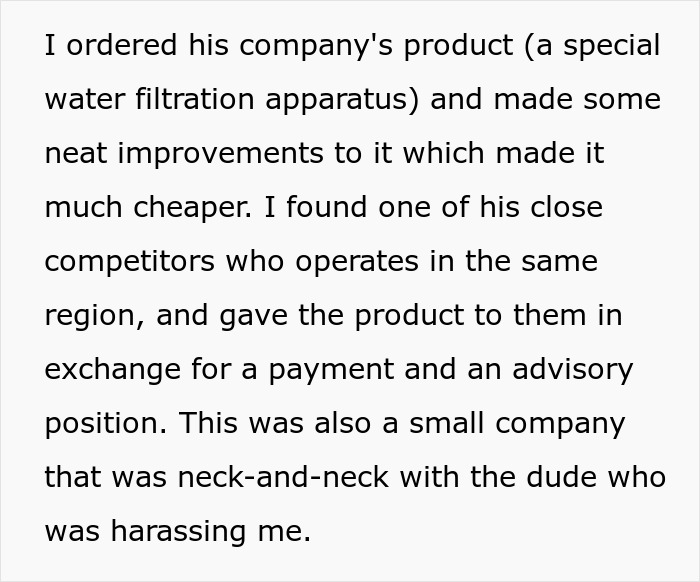
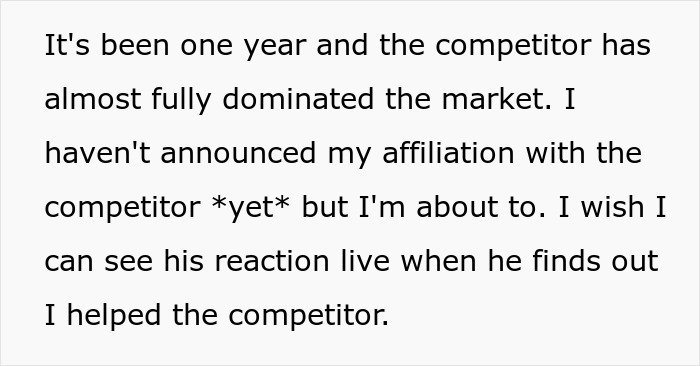
Image credits: Salahuddin_Ayyubi_1
Later, the researcher clarified that he didn’t violate any of the company’s patents
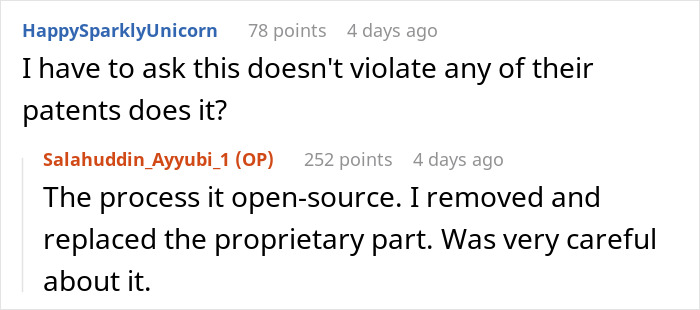

Image credits: Andrea Piacquadio / Pexels (not the actual photo)
“Focus more on working and improving the business and don’t get jealous and distracted by someone getting PR”
To learn more about this situation, we reached out to the researcher who posted this story online, Reddit user Salahuddin_Ayyubi_1. He was kind enough to have a chat with Bored Panda and share what inspired him to make this post. “Just wanted to flex and feel good about it by getting some validation. I know that flexing with a revenge story in public would bring me really bad PR and put me on the spot,” he explained.
The OP also noted that he’ll never know for sure why this CEO started targeting him. “My reasons for why this guy was after me are purely speculative,” he shared. “I had never met him in person and rather appreciated his startup.” He also doesn’t believe that the CEO has any idea that he was behind their decrease in sales. “Or else I would’ve received some sort of indication directly from them,” he added.
We were also curious if the OP had any advice for this CEO. “Focus more on working and improving the business and don’t get jealous and distracted by someone getting PR, even if you think that they don’t deserve it,” he shared. “Also, don’t ignore the fact that a non-technical competitor can always innovate you out of business by bringing someone who understands the tech on board. Being a tech-driven company in a conventional market shouldn’t let you feel too comfortable.”
Finally, as far as the replies his post received go, Salahuddin_Ayyubi_1 says he didn’t get to read through most of them. “But I think that the people talking about IP issues is quite insightful,” he said. “The IP challenges with doing what I did were the primary problem to be addressed in the process of reverse-engineering and improving the product without breaching any critical IP.”

Image credits: Anna Shvets / Pexels (not the actual photo)
Over 40% of Americans say they’ve been the targets of online hate
We’ve all heard that comparison is the thief of joy. It’s better for everyone when we can find ways to be genuinely happy for others’ accomplishments and work on bettering ourselves without feeling like we’re constantly competing with others. But unfortunately, not everyone is in a great place mentally and emotionally, and some find that it’s easier to spread hate than joy.
According to a 2021 study from the Pew Research Center, 41% of Americans say they’ve personally experienced online harassment, and over half of that group says the hate they received has been severe. 55% of Americans believe that bullying is a major problem online, and it has been on the rise over the past decade. In fact, it’s even worse for younger generations.
About two thirds of adults under the age of 30 have been harassed online, but not every demographic is targeted equally. Members of the gay community report being harassed more frequently and more severely than straight adults, and women are three times more likely than men to say that harassment they experienced online was extremely upsetting.

Image credits: Kelly / Pexels (not the actual photo)
Harassment online can have real world impacts
Just like unwanted attention in real life, online harassment can take shape in a variety of different ways. Right To Be explains on their site that this might include doxing, cyberstalking, swatting, sextortion, non-consensual sharing of intimate images, online sexual harassment, defamation, impersonation and hate speech. And just because it’s coming from behind a screen does not mean it can’t have real world effects.
According to Right To Be, receiving hate online can be detrimental to a person’s mental health and wellbeing. It might cause some to develop anxiety, depression or even PTSD. It can create safety risks and make individuals feel like they’ve been silenced or that they cannot fully express themselves. It might even create a financial burden on those who have to spend money to protect themselves, seek professional help, change locations, etc.
When it comes to combating online harassment, it can be difficult to know what to do. In some cases, it might be best to ignore the perpetrators, if they’re seeking attention or a reaction. But Sue Scheff at Psychology Today recommends reporting and flagging all abusive and hateful content. Don’t click like, retweet or share harmful posts, and don’t hesitate to reach out to anyone you know who’s struggling with harassment online. Hate can spread like wildfire, but so can kindness.

Image credits: Andrea Piacquadio / Pexels (not the actual photo)
Hate comments say more about the people posting them than those being targeted
Thankfully, in this case, it doesn’t seem like the online hate escalated to a point where the researcher was actually in danger. It looks like this CEO was just obsessed with proving that he shouldn’t have won the tech competition. But that was all in his head.
It’s probably safe to assume that a healthy, happy, well-adjusted person wouldn’t spend their time joining lectures on Zoom just to leave negative comments, so giving online trolls attention isn’t always worth it. In fact, as the researcher in this story figured out, the best revenge you can sometimes get is simply showing the other person how unbothered and successful you are.
Life Hack explains that most jealousy comes from a place of inadequacy, and it probably has very little to do with the person that someone is jealous of. Just because someone is spending all of their time thinking about you and trying to tear you down doesn’t mean you have to waste a moment worrying about them. Sometimes, the best response is just to delete them from your contacts and block them online.
We would love to hear your thoughts on this story in the comments below, pandas. Then, if you’re interested in checking out another satisfying tale of petty revenge from Bored Panda, we recommend reading this article next!
Readers applauded the researcher for his brilliant revenge, but some warned that the CEO might try to retaliate



